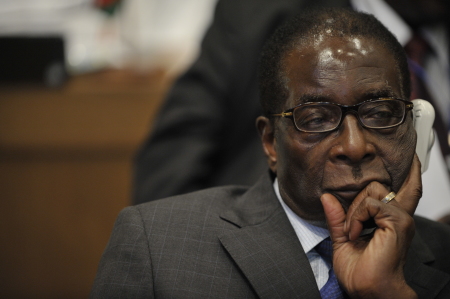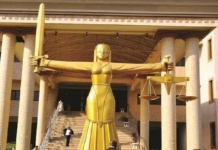Zimbabwe has been excluded from a summit aimed at strengthening US-Africa ties because of President Robert Mugabe’s tainted human rights record.
The gathering, to be hosted by President Barack Obama in Washington, is themed ‘Investing in the Next Generation’ and has been convened to thrash out, among other things, issues relating to trade and investment, the securing of which are high on Zimbabwe’s list of priorities.
Talking to African journalists by telephone ahead of the meeting, US Assistant Secretary of State for African Affairs, Linda Thomas-Greenfield, called the summit a “historic event,” adding: “The theme of the summit is ‘Investing in the Next Generation’. We think this reflects the common ambitions that we share with the people and governments of Africa, to leave our nations better for future generations by making gains in peace and security, and good governance and economic development. So this is going to be an extraordinarily productive and fruitful discussion.”
Mugabe, who is subject to US travel and financial sanctions, joins Sudan’s Omar al-Bashir, Eritrea’s Isaias Afwerki and the Central African Republic’s Catherine Samba-Panza on the small list of African leaders excluded from the summit. Pedzisai Ruhanya, who heads the Zimbabwe Democracy Institute, said Zimbabwe stood to lose a lot by not being represented.
“So the meeting in Washington is important for trade among those countries that are meeting Obama. And also for countries that are looking for foreign direct investment, they will be meeting with American conglomerates that want to invest in developing economies such as Nigeria – Africa’s biggest economy, followed by South Africa. So it is important that such countries meet particularly in America where the heartbeat of international economy is,” he said.
Zimbabwe’s economy has alternated between depression and weak growth for nearly 15 years, ever since Mugabe’s government began to forcibly drive white commercial farmers off their land. Foreign companies are generally reluctant to invest in the country because of political turmoil and Mugabe’s nationalistic economic policies.
Zimbabwe’s deputy foreign affairs minister, Christopher Mutsvangwa, agreed with Ruhanya that the summit was crucial for Africa. But when it comes to Zimbabwe, he said the government was at peace not being present for the discussions.
“Of course, we as Zimbabweans we are not invited. We have no misgivings when America decides to exclude us. It is a country which has been uncomfortable with an assertive nationalist. We brook no strictures from anybody, including America,” said Mutsvangwa.
Asked if Zimbabwe’s exclusion had something to do with Mr Mugabe’s ‘assertive nationalism’, Ruhanya replied: “No, it has nothing to do with uprightness to the West or otherwise. But it has to do with how he governs his country. The kind of economic undergrowth that we have seen has nothing to do with the West. America is averse to authoritarian regimes, averse to patrimonial regimes. That is why Mugabe is not there. That is why he was not invited by Obama. [The snub is] also to do with the [disputed] election of last year.”
The Obama administration was one of the Western governments that refused to recognize Mugabe’s re-election in July 2013, which the opposition MDC party says was rigged.










